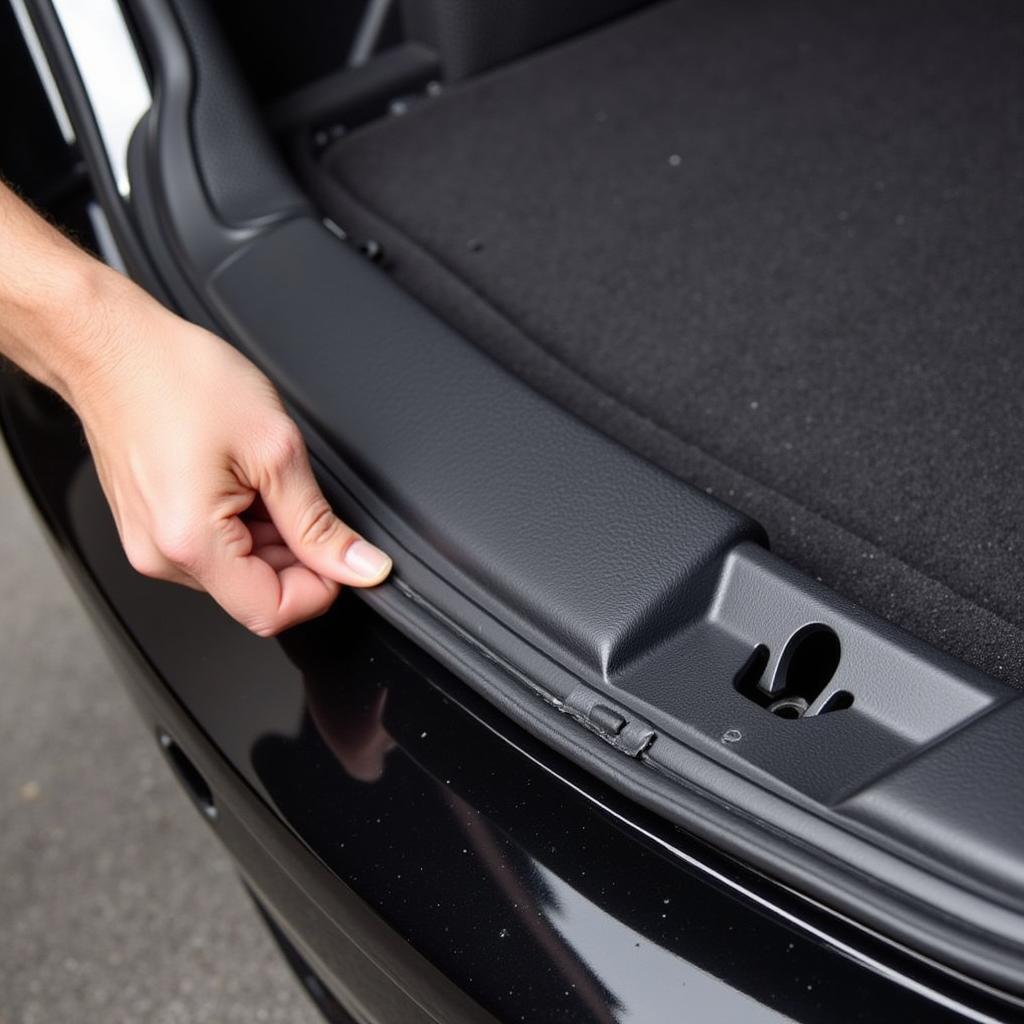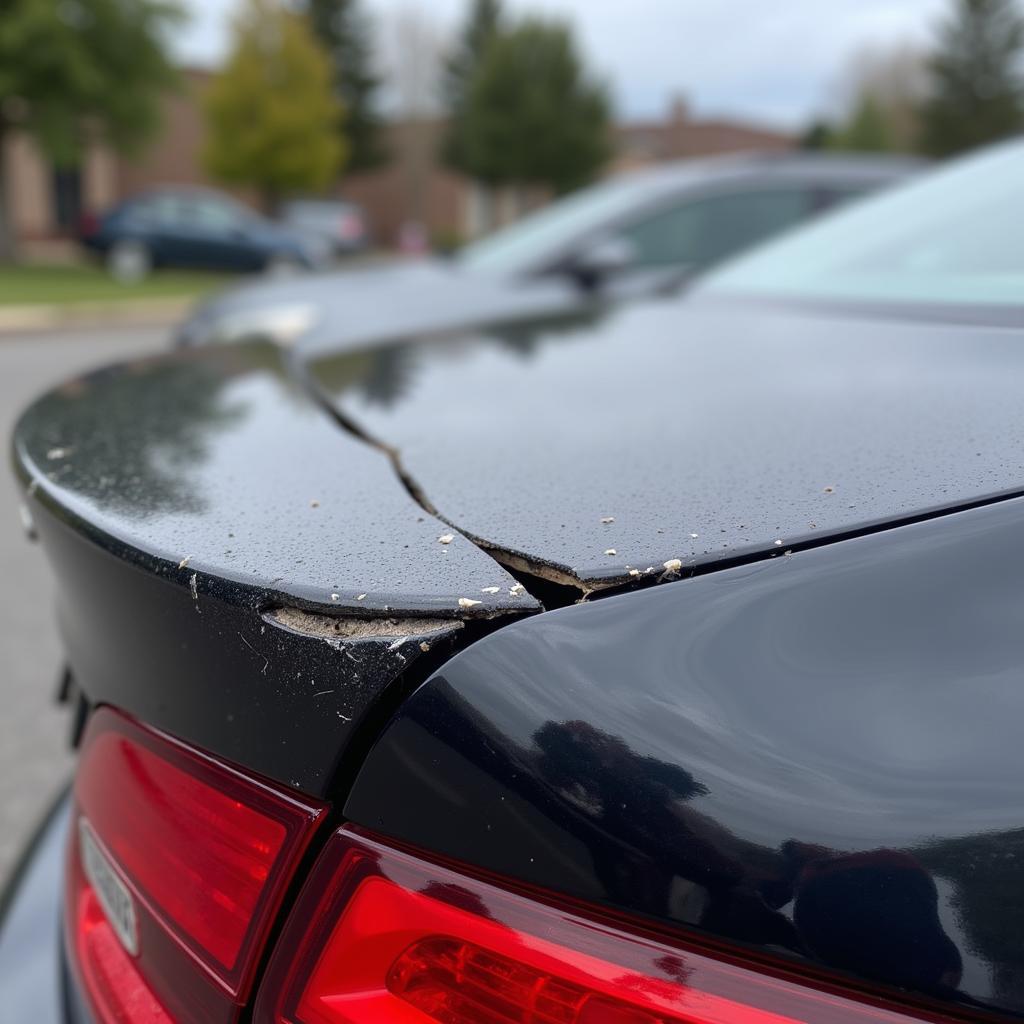Transmission problems are a serious issue and can leave you stranded if ignored. If you’re asking yourself, “can I keep driving when car has transmission problems?” the answer is often a resounding no. Driving with transmission issues can worsen the damage, leading to costly repairs or even a complete transmission failure.
Understanding Transmission Problems: What Are the Signs?
Ignoring transmission problems is a recipe for disaster. Your car’s transmission is a complex system, and even minor issues can quickly escalate into major, expensive headaches. Recognizing the signs of transmission trouble is the first step to protecting your vehicle and your wallet. Some common symptoms include slipping gears, rough shifting, delayed engagement, and a burning smell. Fluid leaks are another common sign, often appearing reddish and sweet-smelling. If you notice any of these, pull over when safe and contact a qualified mechanic. Don’t risk making the problem worse by continuing to drive.
Is your car experiencing unusual vibrations or noises? This can also indicate transmission problems, especially if they occur while shifting gears or accelerating.
Can I Keep Driving? The Risks and Consequences
Continuing to drive with transmission problems isn’t just about the inconvenience; it’s about safety and cost. Driving with a faulty transmission can put you and other drivers at risk. A sudden loss of power or an unexpected shift can cause an accident. Furthermore, ignoring these issues can lead to more extensive damage to your transmission, requiring a complete rebuild or replacement, which can be significantly more expensive than addressing the problem early on. If you’re looking for cars known for their reliability, check out what car has the least problems.
What Happens if I Ignore Transmission Problems?
Ignoring transmission problems can turn a minor repair into a major overhaul. Small issues, like a leak, can lead to complete transmission failure if left unaddressed. Think of it like ignoring a cavity; it might start small, but without attention, it can lead to much bigger, more painful (and expensive) problems. Early diagnosis and repair can save you thousands of dollars in the long run. Have you ever experienced undriven car problems? They can be equally frustrating.
What to Do When You Suspect Transmission Trouble
If you suspect a problem with your transmission, the first thing you should do is stop driving as soon as it’s safe. Continuing to drive could exacerbate the issue. Then, have the vehicle towed to a reputable mechanic. Explain the symptoms you’ve experienced and provide as much detail as possible. A qualified mechanic will diagnose the problem and provide you with a repair estimate. Remember, addressing transmission problems early can prevent further damage and save you money in the long run. You can find more information about specific car problems, like 2004 smart car problems, on our website.
Finding a Reliable Mechanic for Transmission Repair
Finding a trustworthy mechanic is essential when dealing with transmission issues. Look for a shop specializing in transmission repair and has a good reputation in your community. Don’t hesitate to ask for recommendations from friends, family, or online forums. A reliable mechanic will provide you with a clear explanation of the problem, a detailed estimate, and answer any questions you may have. Remember, your car’s transmission is a vital component, and choosing the right mechanic can make all the difference. For instance, if you own a Mustang, you might want to be aware of the car buzz 2018 mustang transmission problems.
Preventive Maintenance: Keeping Your Transmission Healthy
Just like any other part of your car, your transmission needs regular maintenance to stay in good working order. Regular fluid changes and filter replacements are crucial for preventing problems. Consult your owner’s manual for the recommended service intervals. Sticking to these guidelines can significantly extend the life of your transmission and help avoid costly repairs down the road. What car has the fewst mechanical problem? This is a question many car buyers ask, and proper maintenance plays a significant role in the answer.
“Regular transmission maintenance is like brushing your teeth,” says John Smith, ASE Certified Master Technician. “It’s a small investment that prevents much bigger problems down the road.”
“Ignoring transmission problems is like ignoring a flashing check engine light,” adds Jane Doe, another experienced automotive technician. “It’s never a good idea.”
Conclusion: Don’t Drive with Transmission Problems
So, can you keep driving when your car has transmission problems? The answer is generally no. Driving with a faulty transmission is risky and can lead to costly repairs. Recognizing the signs of transmission trouble and addressing them promptly is crucial for maintaining your vehicle’s health and safety. Regular maintenance can also help prevent future problems. If you suspect transmission issues, stop driving, seek professional help, and remember, prevention is always better than cure.
Need help with your car’s transmission? Contact us at AutoTipPro at +1 (641) 206-8880. Our office is located at 500 N St Mary’s St, San Antonio, TX 78205, United States.







Leave a Reply